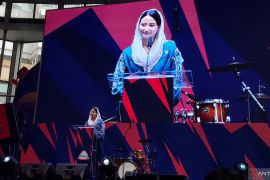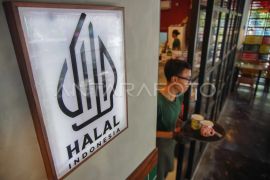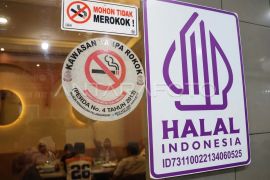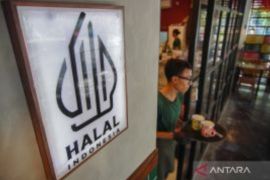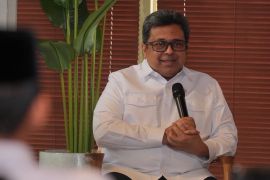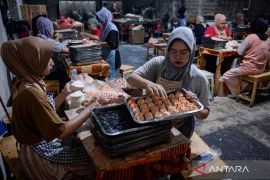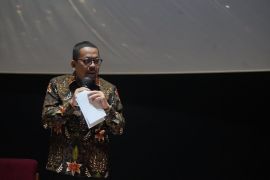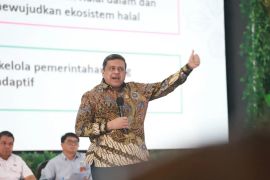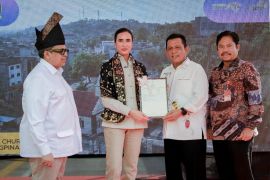The Lombok Island in West Nusa Tenggara has been recognized as the worlds best halal tourism and honeymoon destination, a feat that should have led to shoring up of halal certification for hotels and restaurants in the province.
Data from the Indonesian Ulema Council (MUI) of West Nusa Tenggara indicated that 300 hotels and restaurants in the province have not obtained halal certification that would have helped them attract tourists from Middle Eastern and other Muslim countries.
West Nusa Tenggara MUI Chairman Saiful Muslim explained in the provincial city of Mataram that hotels and restaurant owners were apprehensive that the halal certification could lead to a fall in the number of guests.
The fact, however, is that almost all the hotels and restaurants in a number of developed countries such as Japan, South Korea, Malaysia and Thailand that have long been certified as halal, have never been short of guests.
The halal certificates are issued by the Indonesian Ulema Council, the countrys highest authority on Islamic affairs, in cooperation with the Food, Drug and Cosmetics Assessment Agency (LPPOM), and the Department of Industry and Trade.
LPPOM is an institution under MUI responsible for conducting halal examination, audit and assessment.
At present, acquiring halal certification is optional but Indonesian lawmakers are trying to push for the enactment of a Halal Product Protection Bill which, if passed by the House of Representatives, will make it mandatory to ensure that all products are halal certified before they reach the market.
Once this law kicks in, halal certificates and labels will be required for all packaged foodstuffs, beverages, medicines and cosmetics produced and sold in Indonesia.
Saiful Muslim remarked that he has reminded relevant West Nusa Tenggara Regional Work Units to proactively encourage hotels and restaurant managers in the province to obtain halal certificates.
Among other regions in Indonesia that could serve as halal tourism icons are, besides West Nusa Tenggara, Aceh, West Java, West Sumatra, and South Sulawesi.
Realizing the promising prospects of halal tourism, the Department of Tourism and Creative Economy of Makassar city in South Sulawesi, has expedited a process to familiarize stakeholders with sharia-based travel packages.
"Branded halal travel packages that we offer are indeed targeted at local and foreign tourists who are Muslims," head of Makassar Tourism and Creative Economy Department, Rusmayani Majid, said.
Rusmayani is optimistic about sharia-based travel packages becoming a success since business players and those affiliated to the Indonesian Hotel and Restaurant Association in South Sulawesi have agreed to support such a program.
Numerous hotels in Makassar, including Pesonna Hotel, Grand Town Hotel and Makassar Aston Hotel, besides some other restaurants in the city, have expressed their readiness to support halal tourism.
Sharia-based travel packages are currently perceived as very promising, especially in South Sulawesi, because the potential for such tourism, ranging from kosher culinary tours to religious history tours, in the province is fairly large.
Makassar is one of the 12 halal tourist destinations in Indonesia being promoted by the Ministry of Tourism.
In addition to halal tourism, halal-labeled products domain is growing at a record pace, both locally and internationally.
According to the chairman of the Indonesian Chamber of Commerce and Industry (Kadin), Rosan Perkasa Roeslani, the growth of halal products in regional and global markets signifies a substantial increase in the number of both consumers and producers.
It is not only the growth in the global Muslim population that is responsible for the enhanced demand for halal products but also a tendency among non-Muslims to consume halal products since these are deemed clinically safe and high in quality.
Roeslani said one reason was the constant dissemination of facts regarding halal products among consumers.
In this era of technology, halal products are being traded on e-commerce platforms that have grown rapidly in the past decade.
"If we manage it properly, such internet-based trading of halal products can benefit consumers around the world as well as businesspersons. It will offer the right momentum," he emphasized.
The chairman explained that his organization, which comprised entrepreneurs relying on regional strengths and international relations, was working towards embodying a strong business environment in Indonesia and ensuring a high level of competitiveness in both quality and production values.
The measures being adopted included building capacity and developing readiness to face challenges in a orld of ever-growing opportunities.
"The trade of halal products in the free market is no longer monopolized by Muslim countries or nations with large Muslim populations. In fact, non-Muslim-majority countries have come up with required infrastructure and established halal standards for particular products to be accepted by consumers," he added.
Maintaining a halal lifestyle enables Muslims to gain a sense of equilibrium, modesty, sustainability, safety and stability in their lives.
Having the worlds largest Muslim population, Indonesia will soon have a halal hub comprising halal seaport and halal zone.
The financial and supporting director of PT Jakarta Industrial Estate Pulogadung, Sitta Rosdaniah, has stated that the market for halal products in Indonesia is very large, and there is high demand to lead a halal lifestyle in every strata of society, both in the country and around the world.
Sitta said the halal hub will ensure that lifestyle products, including food, clothing, cosmetics and pharmaceuticals, which are imported into and exported from Indonesia, meet the halal criteria.(*)
Reporter: Otniel Tamindael
Editor: Heru Purwanto
Copyright © ANTARA 2016
